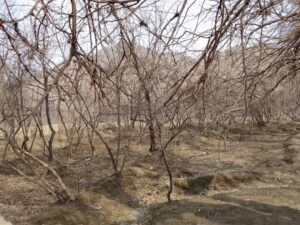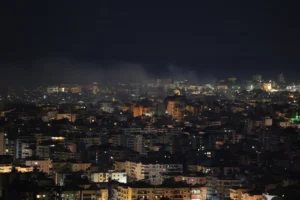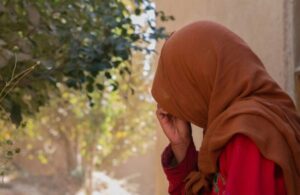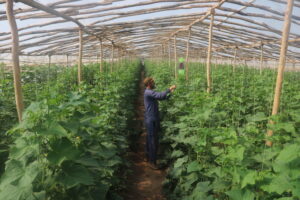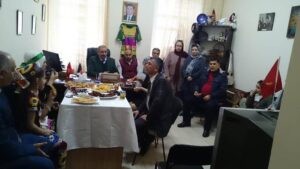MAIDAN WARDAK (SW) – At an early age, Habib Ullah (pseudonym), a resident of restive Maidan Wardak province, embarked on the treacherous journey of irregular migration to Iran.
On the first leg of this otherwise dangerous route, he first traveled to Quetta, Pakistan. Since he did not have enough money, he agreed with the human smuggler that he will pay him them he reaches Iran and finds a job there.
He faced many difficulties on his way to Iran, such as thirst and hunger as well as physical abuse. Habib’s first stop in Iran was in Taftan. He said that the Iranian smuggler put him and his companions in a “pickup” type of car where they could not breathe.
When Habib and his companions arrived in Zahedan, Iran, they were secretly housed in a deserted builder, but the neighbors noticed and informed the police.
According to Habib Ullah, after the arrest, the Iranian police transferred them to a camp called “Black Heart” and they were imprisoned there for 14 days. He says that in the camp, a loaf of bread was given to each of them throughout the day, and in the bread they mixed a substance that caused diarrhea.
Habib added the Iranian police later held him and his companions in a container that was very cold at night and very hot during the day. He said that in the ‘Black Heart’ camp, the room where he and his companions were imprisoned was packed with detainees who could not stretch their legs and they were all sick. Some were sunburned and some had diarrhea. They were only allowed to take a shower once in 24 hours and the camp toilet was very dirty.
According to Habib, after going to the toilet, bread was placed in the square and distributed by the police holding iron bars, and each person had the right to take a loaf of bread only. He added the police kicked out one of the asylum seekers while he was eating and beat him when his voice was heard by him and other companions.
Habib and his companions returned to Afghanistan after 14 days in that camp.
When Habib Ullah arrived in Nimroz province, he decided to return to Iran to escape from the same troubles that compelled him for the first time. He said if he returned to Afghanistan and his home province, the Taliban would capture him and send him to the battlefield.
In Nimroz, he found a smuggler for this purpose and entered Iran on foot from the Afghan border. When he arrived in Iran, the smuggler transported ten people in the seats of two taxis and three others in the trunk of the cars.
They spend five hours in these cars with a little oxygen, and no matter how much they shout, “We are suffocating, there is no oxygen,” no one heard their voices.
Habib said that due to the high temperature, a tire of the car got punctured and the driver unloaded them in the burning plain amid scorching heat to change the tire.
There was not a single drop of water to drink, he recalled. The driver did not give them water and most of them were sunburned in that burning plain and became ill.
When Habib Ullah eventually arrived in Tehran, he found a job and worked on a construction site for 35 days, but his employer did not pay him. In Tehran, a number of people called him “dirty Afghan” and this bothered him a lot.
He eventually returned to the country in 2004 after four years of residence in Iran. “People are not aware of the dangers of irregular migration, which causes such problems and suffering,” said Fariha Jabarkhil, a consultant at the Immigration Information Center.
According to her, even if a person succeeds in reaching his or her destination country, he or she will still not be able to take advantage of the opportunities necessary to progress in his or her life.
Syed Abdul Basit Ansari, an adviser to the Ministry of Refugees and Returnees, said the Afghan government had set up awareness programs to prevent irregular migration. He cited example of free information helpline 5588.
According to Ansari, the Afghan government is aware of the mistreatment of illegal immigrants on the migration routes and is therefore trying to raise awareness among young people so that they do not risk their lives.
Insecurity, poverty and an uncertain future have compelled many to migrate irregularly. Families send their children abroad in the hope of a better future, without knowing what problems their children will face in the process of migration. Reports suggest in some cases families do not play any role in such decisions about migration when mostly young men decide on their own to risk their lives.
ENDS

